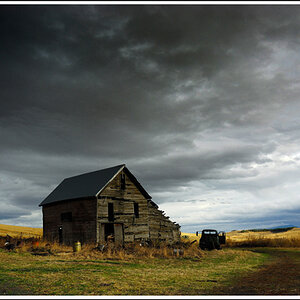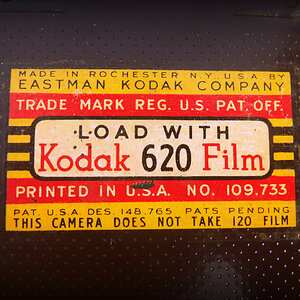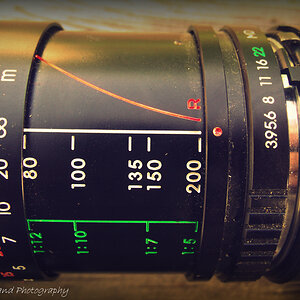I have been doing a lot of reading today to try and figure out if I would legally be able to sell photos that I have taken of a band in concert. My intention is to create artwork in the form of framed and unframed prints which can be displayed in people's homes, offices, etc. I came away with a great deal of knowledge and a great deal of questions so bear with me. I will start with a description of these photos along with what I have learned so far.
These photos were taken by me in what I believe to be "private" locations (concert arenas) where I had to pay admission. I do not have releases from anyone (band, venue officials, etc). The subjects are a band that is probably unrecognizable to the general public but is very popular in certain sectors of society that aren't so-called "mainstream". I have unedited and edited versions done with digital editing software. I am hoping that someone can help determine which, if any, should be legal to sell on ebay, craigslist, and potentially my own website down the road.
I will ask about the most straight forward examples first; the unedited shots. In almost all of them, the band members are recognizable either by their faces or by physical shape, clothing, etc. At first I had thought it was cut and dry: You cannot sell images of celebrities without a model release. After reading from a few sources, I found different information:
This source states that you do not need releases to sell your photos but many photographers get releases in order to make selling to publishers easier. If a publisher knows the photos have a release then they don't have to go through the motions of attaining one. He draws the line at the publishing stage. Selling photos (art prints) does not require a release but publishing them does. How much truth is there to this?
Another user posted this comment which seems to align with the above source:
Then we get into the issue of self publishing. If publishing photos without a release is illegal, is what I would be doing considered publishing? The author of my first quote gives this example:
It seems that his first quote says that selling your photos on your own is not publishing but in the second quote says it can become publishing if your artwork becomes too popular? Can it really be this gray here?
Now let me move on to the type of photos I have been creating that have brought me to this point: Edited concert shots. I came across this quote which sounds like I would be ok:
This author gave the example of Barbara Kruger who took the supposedly well known photograph of Charlotte Dabney below and added the red blocks of type. When she was sued, she won the case because of the edits that she did. She made the image of this famous person her own:

Here is an example of one of my pieces, first unedited and then edited:
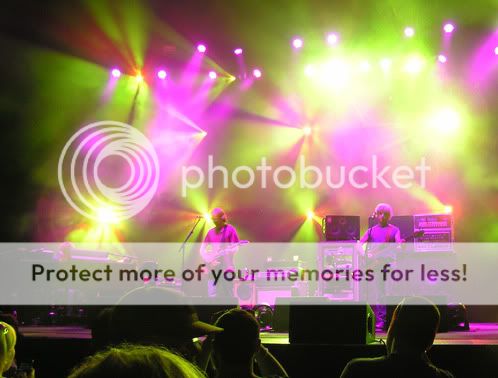

My questions are still along the same lines, just more focused on the edited version rather than the original photo. Does this qualify as "transformative artwork", and will I be able to sell on ebay without repercussions? Does it matter whether or not I include the band name in the item listing or even insert it right into the photo? Remember, we are still assuming I am selling to individuals and not stock photo companies, magazines, etc., for private or semi-private display.
Ok, if you are still with me, thank you for reading. I know this was a long post with a lot of questions, some of them subjective, and I am not looking for any true legal advice, only fellow users' opinions.
Thanks!!
These photos were taken by me in what I believe to be "private" locations (concert arenas) where I had to pay admission. I do not have releases from anyone (band, venue officials, etc). The subjects are a band that is probably unrecognizable to the general public but is very popular in certain sectors of society that aren't so-called "mainstream". I have unedited and edited versions done with digital editing software. I am hoping that someone can help determine which, if any, should be legal to sell on ebay, craigslist, and potentially my own website down the road.
I will ask about the most straight forward examples first; the unedited shots. In almost all of them, the band members are recognizable either by their faces or by physical shape, clothing, etc. At first I had thought it was cut and dry: You cannot sell images of celebrities without a model release. After reading from a few sources, I found different information:
(Taken from Model Release Primer)Since taking pictures doesn't require a release, nor does selling or buying photos, why do photographers get releases then? The answer is alarmingly simple: to sell them. Photographers get releases because they want to sell the pictures to buyers who may need the photos released for particular kinds of publications. Since the photographer happens to be taking the picture, and since they want to sell that picture later, it makes sense to ask the subject to sign a release. In short, you're just making life easier (and safer) for your clients, which helps your business.
This source states that you do not need releases to sell your photos but many photographers get releases in order to make selling to publishers easier. If a publisher knows the photos have a release then they don't have to go through the motions of attaining one. He draws the line at the publishing stage. Selling photos (art prints) does not require a release but publishing them does. How much truth is there to this?
Another user posted this comment which seems to align with the above source:
But then what category does what I am trying to do fall under (printing and selling band concert photos to individuals)? I would be simply offering images for sale but it could also technically be labeled a business because I am trading goods for money, and would probably create a "business name" that could be used on a website.Permission is needed when you use another person's image to promote businesses, goods and services. If the use promotes or advertises your business, you should have a "release." If you are simply offering the image for sale, you don't.
Then we get into the issue of self publishing. If publishing photos without a release is illegal, is what I would be doing considered publishing? The author of my first quote gives this example:
(Taken from Model Release Primer)But, what if your friends start telling their friends? And their friends tell their friends? At some point along this spectrum, you cross into the realm of "distribution"the kind that requires consent (a release). There's no simple line; it's a slow, gradual one. In fact, there was a case where The Black Mustang Cluba private group of car ownerswanted to put together a calendar featuring member's cars and print it through Cafe Press, but an attorney from Ford nixed the project, stating that the calendar pics and 'anything with one of (member's) cars in it infringes on Ford's trademarks which include the use of images of their vehicles.' Now, reading the popular press on the subject (namely, that of photo newsgroups), you'd think that it was illegal to take pictures of your own car. No, that's not the case. There was nothing wrong with anything about this project until it got to the point where the poster had become so popular, that the people buying it so outnumbered the members of the club itself, that it was clearly a form of public distribution. And because it was, buyers had assumed that the poster was a product of (and/or advocated or sanctioned by) Ford. It was for this reason only that Ford forced them to stop selling the poster. And it was the use of the logo that gave people such an impression.
It seems that his first quote says that selling your photos on your own is not publishing but in the second quote says it can become publishing if your artwork becomes too popular? Can it really be this gray here?
Now let me move on to the type of photos I have been creating that have brought me to this point: Edited concert shots. I came across this quote which sounds like I would be ok:
(Taken from Using the Name or Likeness of Another | Citizen Media Law Project)As a general matter, you will not be held liable for using someone's name or likeness in a creative, entertaining, or artistic work that is transformative, meaning that you add some substantial creative element over and above the mere depiction of the person. In other words, the First Amendment ordinarily protects you if you use someone's name or likeness to create something new that is recognizably your own, rather than something that just evokes and exploits the person's identity.
This author gave the example of Barbara Kruger who took the supposedly well known photograph of Charlotte Dabney below and added the red blocks of type. When she was sued, she won the case because of the edits that she did. She made the image of this famous person her own:

Here is an example of one of my pieces, first unedited and then edited:


My questions are still along the same lines, just more focused on the edited version rather than the original photo. Does this qualify as "transformative artwork", and will I be able to sell on ebay without repercussions? Does it matter whether or not I include the band name in the item listing or even insert it right into the photo? Remember, we are still assuming I am selling to individuals and not stock photo companies, magazines, etc., for private or semi-private display.
Ok, if you are still with me, thank you for reading. I know this was a long post with a lot of questions, some of them subjective, and I am not looking for any true legal advice, only fellow users' opinions.
Thanks!!


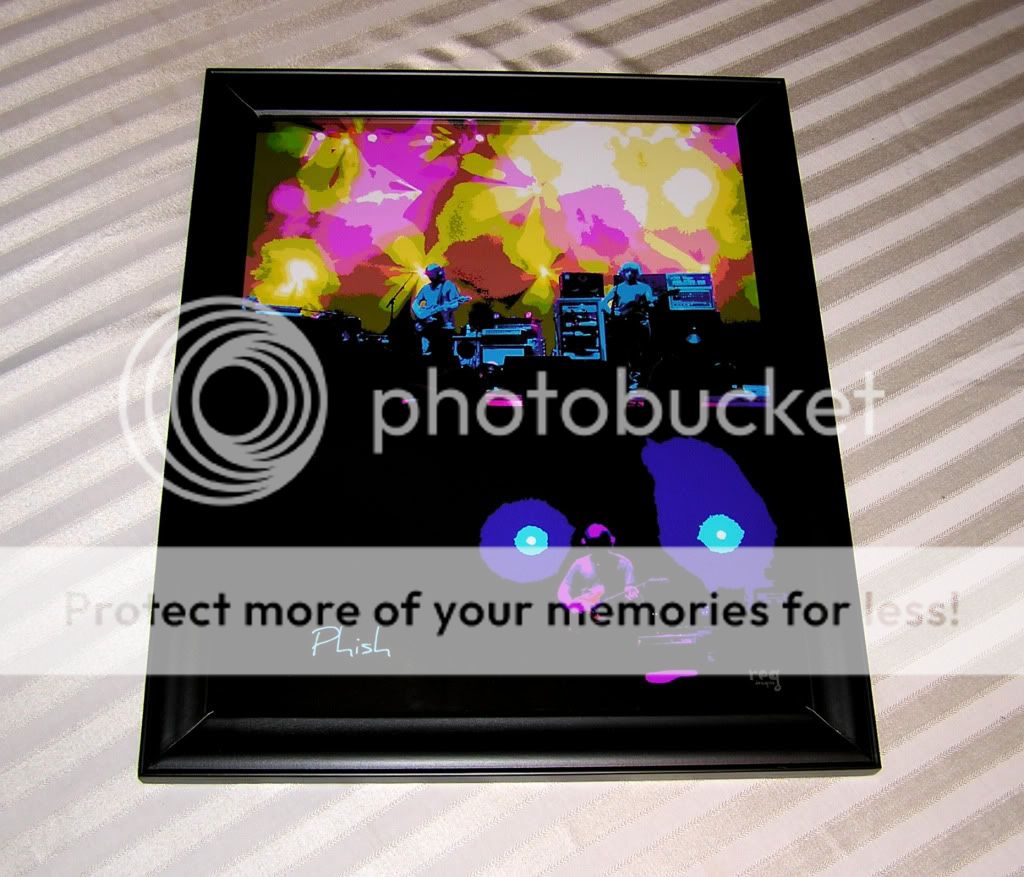
![[No title]](/data/xfmg/thumbnail/42/42256-dce29145f58094ceabbe05c0c8cef7fc.jpg?1619740065)
